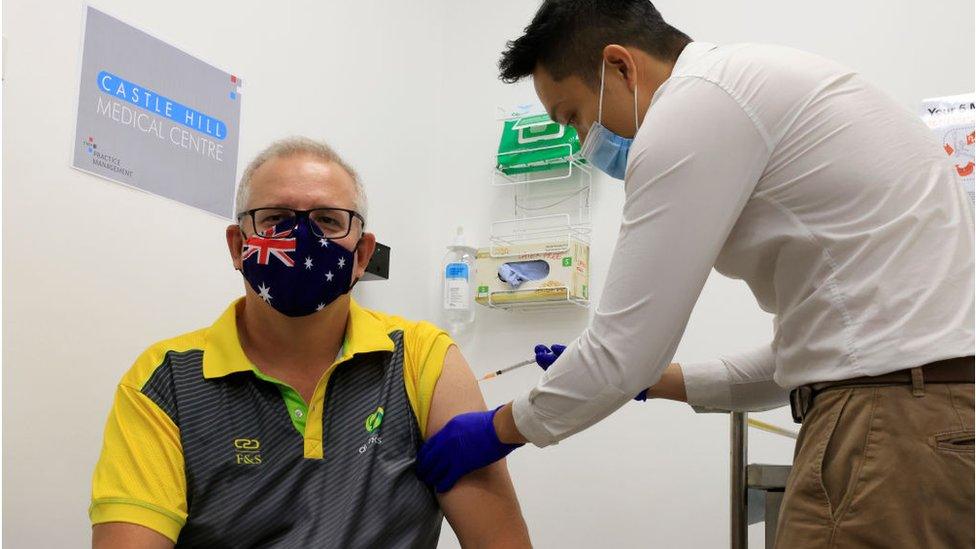Covid: Sydney faces new restrictions as cluster grows
- Published
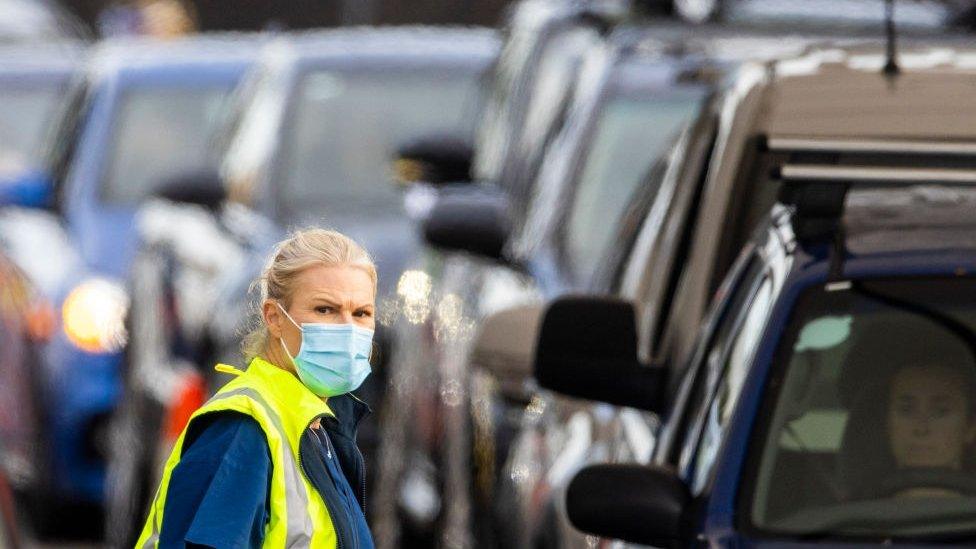
A new cluster of cases has emerged in Sydney's beach suburbs
Sweeping new restrictions will be imposed across Sydney as Australia's largest city grapples with a fast-growing Covid outbreak.
Authorities reported 16 new infections on Wednesday, which brings the cluster there to 37 cases.
Sydney's 5.3 million residents will have to wear masks indoors, and many will be banned from travelling out of the city.
Officials are concerned about the "extremely contagious" Delta variant.
The cluster marks the largest rise in infections in Sydney since December. For most of the year, locals have enjoyed almost no restrictions on daily life.
But the sharp case rise in the past week has prompted authorities to reinstate distancing rules.
"Please abandon non-essential activities, please don't attend social gatherings unless you absolutely must," said New South Wales (NSW) Premier Gladys Berejiklian.
From Wednesday, households will be limited to a maximum of five visitors. Restrictions will also be put in place at dining venues, gyms, sporting arenas and other gathering areas.
People who live or work in central and eastern Sydney will be banned from travelling out of the city.
NSW Health Minister Brad Hazzard said the virus risk had escalated to a "very real and present danger" right across Sydney.
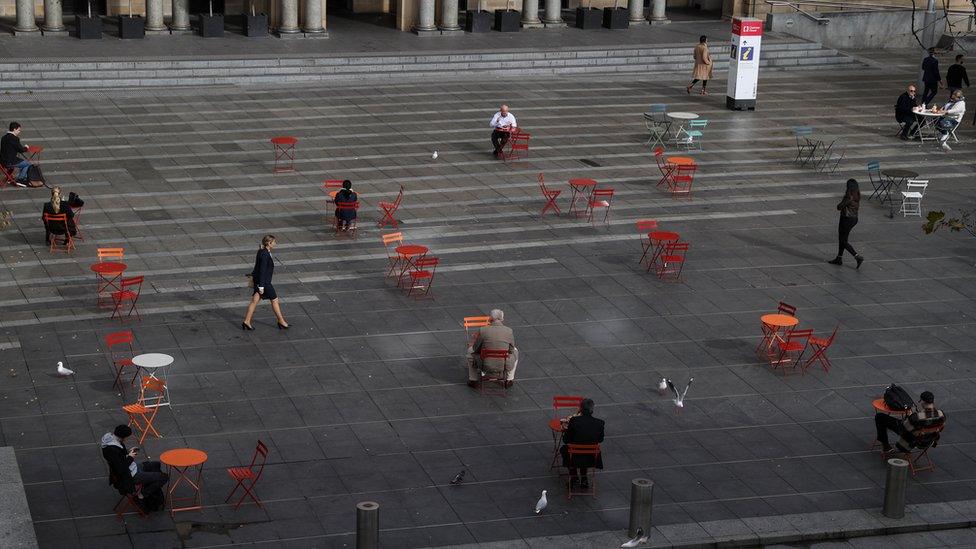
Sydneysiders have also been told to avoid going to work in the central business district - one of the affected virus areas
The cluster of infections had initially centred around a shopping centre in Bondi, the popular beachside suburb and famous tourist destination in the city's east.
On Wednesday, authorities reported that cases had also been detected on the other side of Sydney, some 65km (40 miles) away from known hotspots.
The outbreak was also causing concern in New Zealand, after an infected person travelled from Sydney to Wellington.
New Zealand authorities introduced a number of restrictions on Wednesday, while the "travel bubble" that allows people to fly between the two countries was closed to passengers from Sydney.
Lockdown fears
There is public speculation that Sydney may enter a lockdown if case numbers continue to increase.
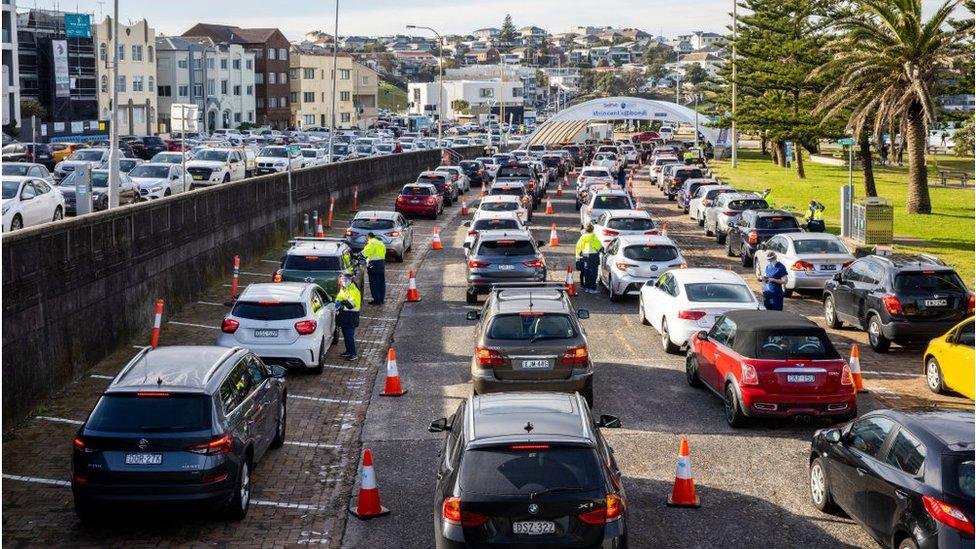
Drive-in Covid testing sites were flooded with people in Sydney's Bondi beach
Unlike other state capitals, the city has tended not to enter snap lockdowns following outbreaks in the community. Melbourne only last week emerged from a two-week lockdown.
The New South Wales state government has instead relied on swift contact-tracing and more localised lockdowns.
On Wednesday, Premier Gladys Berejiklian did not rule out a city shutdown in the future but said: "We will not burden our citizens unless we absolutely have to do".
She added that authorities knew "basically" where the virus was and this could be contained if people "reined in their behaviour" and followed the new rules.
Australia's Covid case numbers have been relatively low compared to other developed nations. It has recorded 910 deaths and about 30,360 cases.
The country has relied on strict border controls, tough social-distancing rules and quick contact tracing to keep infection rates low.
‘Heartless’ Queensland state bars family from dying father
- Published22 June 2021
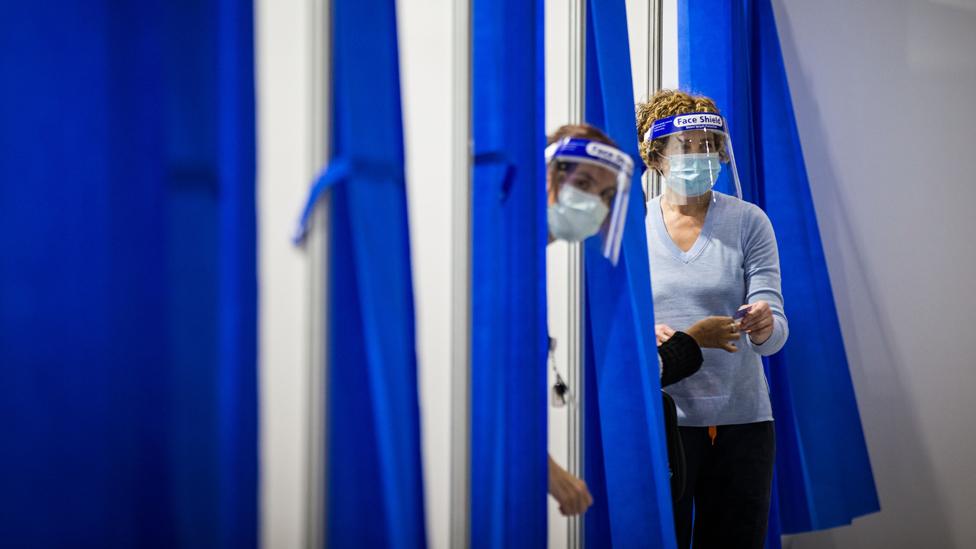
- Published2 June 2021
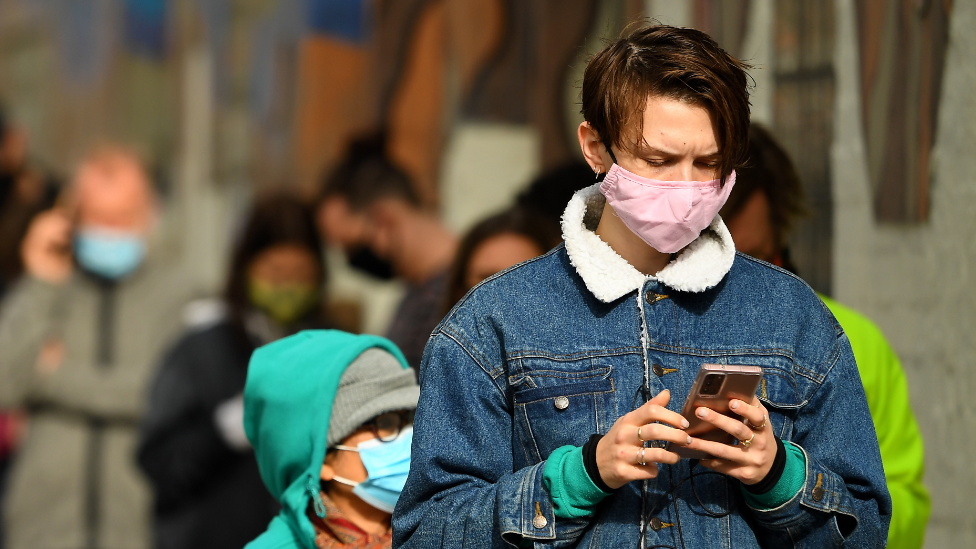
- Published17 June 2021
